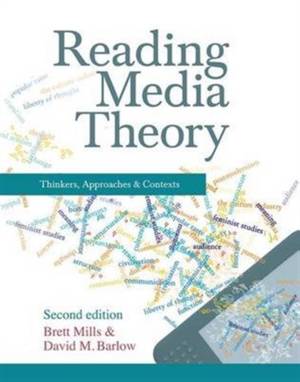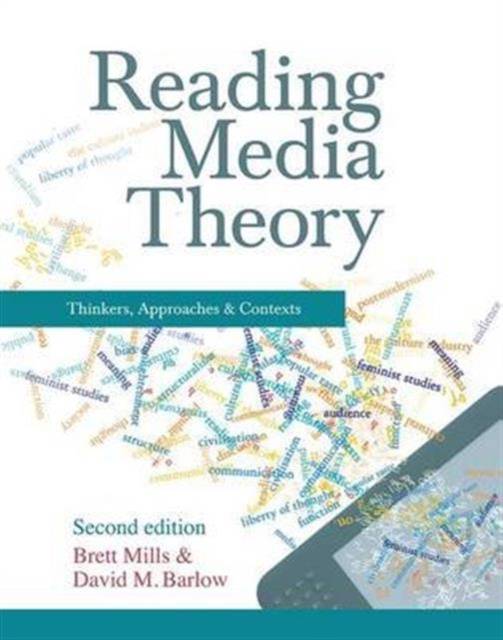
- Afhalen na 1 uur in een winkel met voorraad
- Gratis thuislevering in België vanaf € 30
- Ruim aanbod met 7 miljoen producten
- Afhalen na 1 uur in een winkel met voorraad
- Gratis thuislevering in België vanaf € 30
- Ruim aanbod met 7 miljoen producten
Reading Media Theory
Thinkers, Approaches and Contexts
Brett Mills, David M BarlowOmschrijving
What does the Frankfurt School have to say about the creative industries? Does the spread of Google prove we now live in an information society? How is Madonna an example of postmodernism? How new is new media? Does the power of Facebook mean we're all media makers now?
This groundbreaking volume - part reader, part textbook - helps you to engage thoroughly with some of the major voices that have come to define the landscape of theory in media studies, from the public sphere to postmodernism, from mass communication theory to media effects, from production to reception and beyond. But much more than this, by providing assistance and questions directly alongside the readings, it crucially helps you develop the skills necessary to become a critical, informed and analytical reader.
Each reading is supported on the facing page by author annotations which provide comments, dissect the arguments, explain key ideas and terminology, make references to other relevant material, and pose questions that emerge from the text.
Key features:
- Opening chapters: 'What is theory?' and 'What is reading?' bring alive the importance of both as key parts of media scholarship
- Pre-reading: substantial Introductory sections set each text and its author in context and show the relevance of the reading to contemporary culture
- Post-reading: Reflection sections summarise each reading's key points and suggests further areas to explore and think about
- 4 types of annotations help you engage with the reading - context, content, structure, and writing style .... as well as questions to provoke further thought
- Split into 4 sections - Reading theory, Key thinkers and schools, Approaches and Media Theory in context
New to the second edition:
- New chapters on New Media, and Audiences as Producers
Reading Media Theory will assist you in developing close-reading and analytic skills. It will also increase your ability to outline key theories and debates, assess different case studies critically, link theoretical approaches to a particular historical context, and to structure and present an argument. As such, it will be essential reading for undergraduate and postgraduate students of media studies, cultural studies, communication studies, the sociology of the media, popular culture and other related subjects.
Specificaties
Betrokkenen
- Auteur(s):
- Uitgeverij:
Inhoud
- Aantal bladzijden:
- 704
- Taal:
- Engels
Eigenschappen
- Productcode (EAN):
- 9781138128125
- Verschijningsdatum:
- 8/10/2015
- Uitvoering:
- Hardcover
- Formaat:
- Genaaid
- Afmetingen:
- 203 mm x 254 mm
- Gewicht:
- 1623 g

Alleen bij Standaard Boekhandel
Beoordelingen
We publiceren alleen reviews die voldoen aan de voorwaarden voor reviews. Bekijk onze voorwaarden voor reviews.











